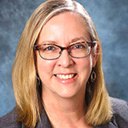CPA licensure bills return to Minnesota Legislature
February 14, 2024 | Linda Wedul, CAE

The 2024 Minnesota legislative session convened this week and bills introduced last year automatically rolled over into the second year of the biennium.
Included among those bills are
House File 1749 and
Senate File 1660, which are the MNCPA-backed bills to
broaden the pathways to CPA licensure. The MNCPA drafted the legislation after years of discussion with members and an MNCPA survey of members clearly showed concern about the pipeline.
The bills have not changed from last year. They did, however, start a national conversation about the requirements to become a CPA. This proposed legislation is not a judgment on the 150-hour rule because it keeps that option in place. The proposal does broaden the pathways to licensure options, which could reduce the time and cost to CPA candidates.
In the coming weeks and months, we anticipate — and encourage — a robust discussion on the proposed legislation. Naturally, there is a process to follow at the Capitol, and it’s always hard to predict how it will unfold. As your member organization, we will update you throughout the entire process and encourage you to be part of the conversation.
Other states are addressing the pipeline challenge, too
It’s also important to note that we are not alone in examining this issue for current and future CPAs. Many other states are looking at solutions to address the pipeline challenge facing the accounting profession. Examples include:
- The Arizona Society of CPAs surveyed members and found 81% of respondents believe it would be beneficial to the profession to provide alternative pathways to certification where 150 hours of college education is one option, but not the only option.
- The Virgina Society of CPAs published an article stating, “the 150-hour requirement is not currently meeting the profession’s expectations. What we need to do now is figure out a way — on a national level — to review the requirement so that it is meaningful and provides value.” Added VSCPA member, Damon DeSue: “There is no ability to push this under the rug, the conversation is here to stay.”
- The New Jersey Society of CPAs survey of members found nearly 80% of respondents believe providing alternative pathways to certification would benefit the profession. Additionally, 62% of respondents saw no noticeable difference in preparedness of staff who have accounting degrees with 120 credit hours versus those who have 150 credit hours.
Substantially equivalent additional pathways already exist elsewhere
You may have been led to believe no additional pathways exist for candidates outside of the 150-hour rule. However, other states already have additional pathways to licensure in place and those states are considered substantially equivalent.
- Ohio allows two additional options:
- A bachelor’s degree with 120 credits, two years of work experience and scoring at least 670 on the Graduate Management Admission Test (GMAT).
- A two-year degree with at least 60 credits, four years of work experience and at least a score of 670 on the GMAT.
- New York provides an additional pathway with 15 years of experience and passing the CPA exam.
- Nebraska allows candidates to use experience “in lieu of being a college or university graduate.”
- South Carolina allows military personnel to use executive education courses, which is similar to taking continuing professional education, to qualify candidates for CPA certification.
These examples were in place well before the Minnesota legislation was introduced in 2023 and
NASBA determined these states are substantially equivalent with their respective pathways. Substantial equivalency is a brilliant concept and serves the users of CPA services well. Substantial equivalency and broadening the pathways to licensure are not mutually exclusive.
Research highlights the pipeline challenges
The 150-hour rule has resulted in unintended consequences.
In the past 30 years, there has been sufficient data to evaluate the impacts. Four recent studies show a decline in CPA candidates and, more importantly, a significant barrier to minority populations choosing an accounting degree and taking the CPA exam.
The profession is adaptable
It is the individual state legislatures and boards of accountancy that determine licensure and substantial equivalency. Some states are already working on legislative changes that preserve mobility while making slight changes to broaden the pathways.
While the MNCPA solution may not be what ultimately becomes law, we believe an open discussion including CPAs, educators, regulators and legislators is important as the profession adapts and continues to serve a vital role creating the financial foundations and accountability needed for economic success. That is why our legislation remains active in the Minnesota Legislature.
The profession has demonstrated it is adaptable. Adaptability should also apply to the requirements to become a CPA. We encourage the AICPA and NASBA to communicate the importance of broadening the pathways to licensure. One might be led to believe that broadening the pathways is destructive; rather, it is a reasonable response to one of the factors leading to the decline of CPA candidates.
The MNCPA will continue to update you as this conversation continues to advance.
Learn more about this CPA pathways initiative
Do you want to learn more about this effort? You can keep up with the evolving conversation by visiting the MNCPA’s webpage about the broadening pathways to CPA licensure initiative.
VISIT CPA PATHWAYS PAGE
Topics: Legislative & Government Affairs, Regulation, Staffing, Professional Certification, Succession, Government, Education, MNCPA Programs & Activities
Linda Wedul, CAE

Linda Wedul is president and CEO of the MNCPA. She’s usually spotted at MNCPA events, introducing herself to members with a warm smile and memorable laugh. Mixed among the Footnotes, accounting journals, leadership books and three monitors in her office, you’d be surprised to see a dog kennel. Her unpaid job is volunteering as a foster family for service dogs in training through Can-Do-Canines. She and her husband have two adult children and live in Farmington. Linda can be reached at 952-885-5516 or lwedul@mncpa.org.
Blog Posts by this author